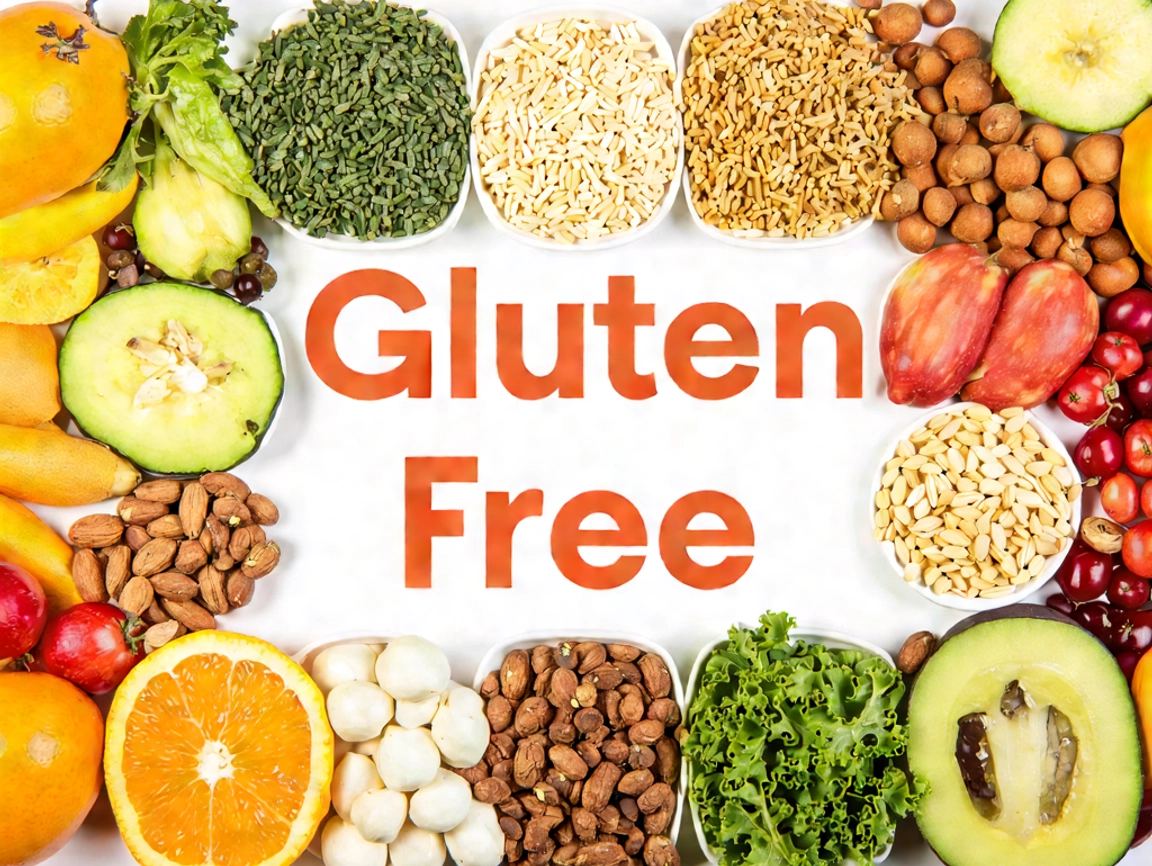The gluten-free diet has gained massive popularity over the years, but is it really a healthy choice for everyone? Let’s dive into the world of gluten-free foods, explore their benefits, and determine how they fit into a balanced diet.
What is Gluten?
Gluten is a protein found in wheat, barley, and rye. It gives bread its elasticity and helps baked goods maintain their shape. While many people consume gluten without issue, for others, it can cause serious health problems.
People with conditions like celiac disease, gluten sensitivity, or wheat allergies need to avoid gluten. In these cases, gluten triggers adverse reactions, including digestive issues, inflammation, and other complications.
The Rise of Gluten-Free Foods
Gluten-free foods were once limited to specialty stores, but now, they’re available everywhere—from supermarkets to restaurants. This surge in popularity is partly due to increased awareness of gluten-related disorders and the perception that gluten-free foods are healthier.
But are they?
Benefits of Gluten-Free Foods
- A Relief for Those with Gluten Intolerance
For people with gluten sensitivity or celiac disease, gluten-free foods are essential. These options prevent symptoms like bloating, diarrhea, and fatigue, enabling better overall health. - Naturally Nutritious Choices
Many gluten-free foods, such as fruits, vegetables, lean proteins, nuts, seeds, and legumes, are naturally gluten-free and packed with essential nutrients. - Potential Reduction in Processed Foods
Adopting a gluten-free diet often encourages people to cut down on processed foods and focus on whole, minimally processed options. - Promotes Digestive Health
Gluten-free diets may benefit those with sensitive digestive systems. Even people without celiac disease report improvements in bloating and gas when they eliminate gluten.
Are Gluten-Free Foods Healthier for Everyone?
Not necessarily. Just because a food is gluten-free doesn’t automatically make it healthier. Many gluten-free packaged products are high in sugar, fat, and calories to compensate for the lack of gluten. Overindulging in these items can lead to weight gain and other health issues.
However, focusing on naturally gluten-free foods—such as vegetables, fruits, and whole grains like quinoa and brown rice—ensures you’re consuming wholesome and nutritious meals.
Tips for a Healthy Gluten-Free Diet
- Choose Whole Foods
Emphasize fresh produce, lean proteins, and naturally gluten-free grains to maximize nutrition. - Read Labels Carefully
Gluten-free products can still contain unhealthy additives. Check for hidden sugars, fats, and artificial ingredients. - Incorporate Variety
To avoid nutritional gaps, include diverse foods like nuts, seeds, and gluten-free grains in your diet. - Consult a Nutritionist
If you’re considering a gluten-free diet for health reasons, consult a dietitian to ensure you’re meeting your nutritional needs.
Conclusion
While gluten-free foods are a lifesaver for people with gluten-related disorders, they aren’t necessarily healthier for everyone. A balanced approach that prioritizes whole, nutrient-dense foods is key to a healthy diet—whether gluten-free or not.
Remember, the best diet is the one that works for your body and meets your nutritional needs.

Thanks for insight..
The gluten-free trend has certainly made its mark, but it’s important to understand its true impact on health. While it’s essential for those with gluten intolerance, it’s not a one-size-fits-all solution. Many gluten-free products are highly processed and can be less nutritious than their gluten-containing counterparts. Focusing on whole, naturally gluten-free foods is a smarter approach for most people. Is the gluten-free diet being overhyped as a universal health solution? German news in Russian (новости Германии)— quirky, bold, and hypnotically captivating. Like a telegram from a parallel Europe. Care to take a peek?